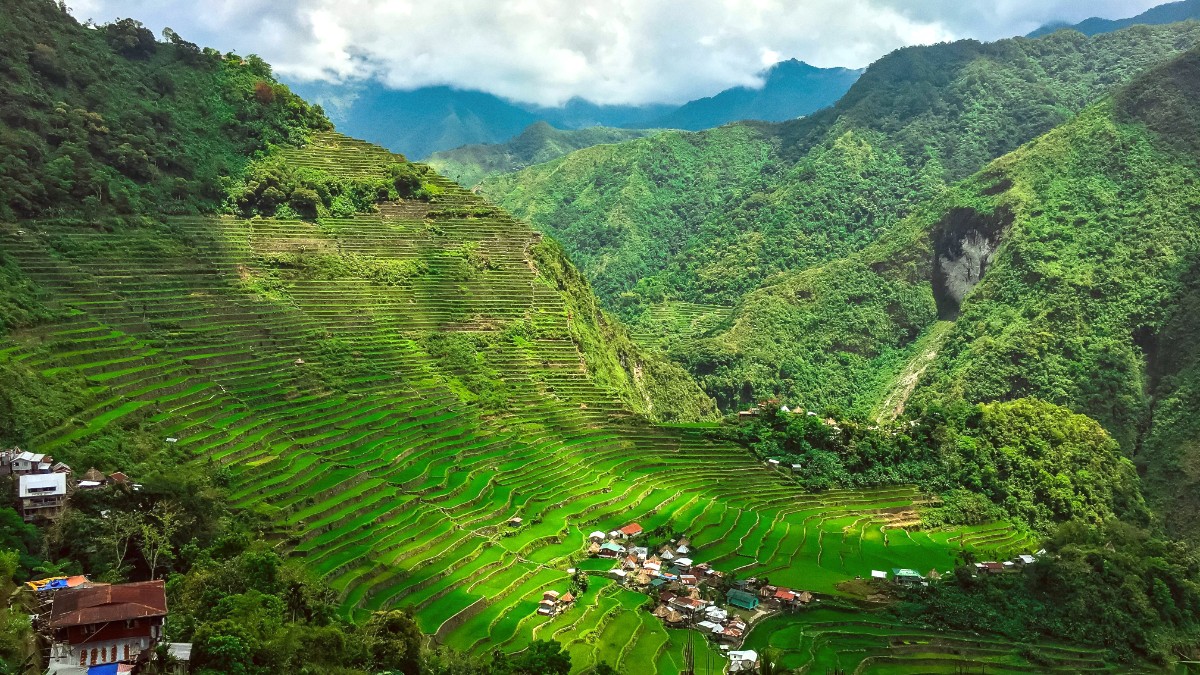
Philippines
Ifugao cuisine is simple, hearty, and directly linked to agricultural practices, especially rice cultivation.
It local ingredients, traditional cooking methods (boiling, steaming, grilling), preserving natural flavors.
The absolute staple. Often, you will find traditional red or black glutinous rice varieties.
Leafy greens (camote tops, ferns), legumes, and root crops (sweet potato, taro, yam) are common. Pork and chicken are main meats.
Freshwater fish, sourced from rivers or ponds within the terraces' irrigation system, the diet.
Traditional Ifugao dish with cultural significance. Traditionally, a chicken is beaten before cooking, believed to tenderize the meat.
Found in local Banaue eateries or homestays in Batad. (Note: Traditional preparation can be sensitive).
Savory and rich dish with pork meat and entrails simmered in pig's blood, vinegar, and spices. A hearty dish.
Simple grilled pork, often marinated in soy sauce, vinegar, and spices. Widely appreciated throughout the Philippines.
Limited compared to larger cities. Simple grilled items or local snacks near markets. Choose vendors with high hygiene.
During major Ifugao festivals, specific ritualistic foods are prepared, often elaborate pig or chicken dishes.
Dining choices mirror the rural and traditional nature of the region.
Local, informal eateries in Banaue and some mid-range restaurants.
Authentic meals at homestays or fresh finds at the market.
Navigating restrictions can be challenging. Clear communication is .
Formal cooking classes are not common. Informal observation might arise in homestays.
Valuable insights into traditional rice farming.
These can be arranged informally through local guides or homestay hosts in Batad.
A direct connection to the source of your food.
Unparalleled ambiance with terrace views.
Directly from the paddies you see.
Taste the local rice wine.
Observe unique culinary traditions.
Taste the local rice wine, Tapuy, for an unique flavor.
Explore Binatog and various native sweets made from rice or root crops.
Research restaurants in advance if possible, especially in Banaue.
Carry some emergency snacks that comply with your dietary needs.
Formal cooking classes are not common. Opportunities for informal observation might arise in homestays.
Visits to farms and food producers can be arranged informally through local guides or homestay hosts in Batad.
Local village festivals may specific ritualistic foods.
During major Ifugao festivals, specific ritualistic foods are prepared.
Elaborate pig or chicken preparations.
These meals reflect the cultural and spiritual significance of the events.
A direct link to ancient traditions.
Carinderias and guesthouses in Banaue, homestays in Batad. Limited international cuisine.
Simple, hearty, locally sourced ingredients. Emphasis on rice, vegetables, pork, and chicken.
Shared meals are common. Accept food when offered. Avoid wasting food.
Be adventurous with your food choices, but prioritize hygiene.